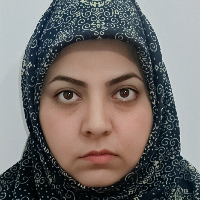The Burnout and Exhaustion Due to Parental Responsibilities: The Role of Parent-Child Demographic Variables
Children are a source of energy and happiness for parents, however, if the parent–child interactions are viewed in the family context, it can be seen that parenting is a complex and stressful career and for some people. It is associated with a feeling of exhaustion and lack of energy due to caring of their children. This lack of energy and necessary physical and mental resources for the management of children goes so far as cause to exhaustion and tiredness from parenting role, the emotional distance of children, and the loss of parental efficiency. Therefore, functioning as important dimensions of parental burnout in parents and especially for mothers who are considered as permanent caregivers of children in the family. The parental burnout that has recently been affected by burnout in the professional environment entered to psychological literature and in the context of parent–child interactions, it is associated with environmental, personality, and demographic variables and in the case of stability, cause to negative psychological and physical consequences for children and caregiver. The purpose of current study was to investigate the role of demographic variables in burnout and exhaustion caused by parenting tasks.
The research method was descriptive and correlation. The statistical population of the study consisted of all mothers, including mothers of children with disability and mothers with non–disabled children living in Qazvin city (North of Iran), among them the research sample consist of 149 mothers including 67 mothers of children with physical–motor and deafness disability and 82 mothers with non–disabled children were selected. Mothers with a disabled child were selected by referring to rehabilitation centers of the disabled under supervise of the general department of welfare and mothers of children with no disabilities were sampled from the public centers of the city, such as parks, sport clubs and cultural centers between summer to autumn of 2018 by convenient and voluntary sampling. After explaining the purpose of the study, taking consent of mothers to participate in the study and ensuring them about confidentiality of their information, they completed the measurement tools. These scales included a questionnaire containing the demographic variables related to parent–child (researcher–made) and parental burnout assessment (Roskam et al., 2017) consist of four dimensions emotional exhaustion, contrast with parenting role in the past, loss of parental accomplishment and emotional distancing. In the present study, the reliability of the subscales and the total scale were 0.91, 0.90, 0.88, 0.69 and 0.96 respectively. Regarding to the aim of the study, to examine the relationship between demographic variables in predicting parental burnout, Pearson correlation test and multiple linear regression were used.
Among the parent–related variables, including the age of the mother, the number of children, the level of mother's education, the length of marriage, the age of the mother's marriage, the status of mother's job and child–related variables, including the age of the oldest child and the child's health status that entered into the correlation analysis the results showed the significant negative correlation between the length of marriage (r=–0.18, p=0.04) and the education level of mothers with parental burnout (r=–0.21, p=0.014). There was a significant positive correlation between having a child with disability and parental burnout (r=0.17, p=0.042). Among the variables entered in the regression analysis the results also showed that the education level of mothers (β= –0.25, p=0.003) and the length of marriage had the most power in predicting parental burnout (β= –0.22, p=0.007).
The presence of child in the interaction field of couples, especially the child with special needs, imposes the responsibilities beyond the ability of parents particularly, to mothers. Based on the result of the current study considering the variables that cause burnout and exhaustion of in mothers as permanent caregivers and main educators of children is essential in development and richness of parent–child relationships and family stability.
- حق عضویت دریافتی صرف حمایت از نشریات عضو و نگهداری، تکمیل و توسعه مگیران میشود.
- پرداخت حق اشتراک و دانلود مقالات اجازه بازنشر آن در سایر رسانههای چاپی و دیجیتال را به کاربر نمیدهد.


